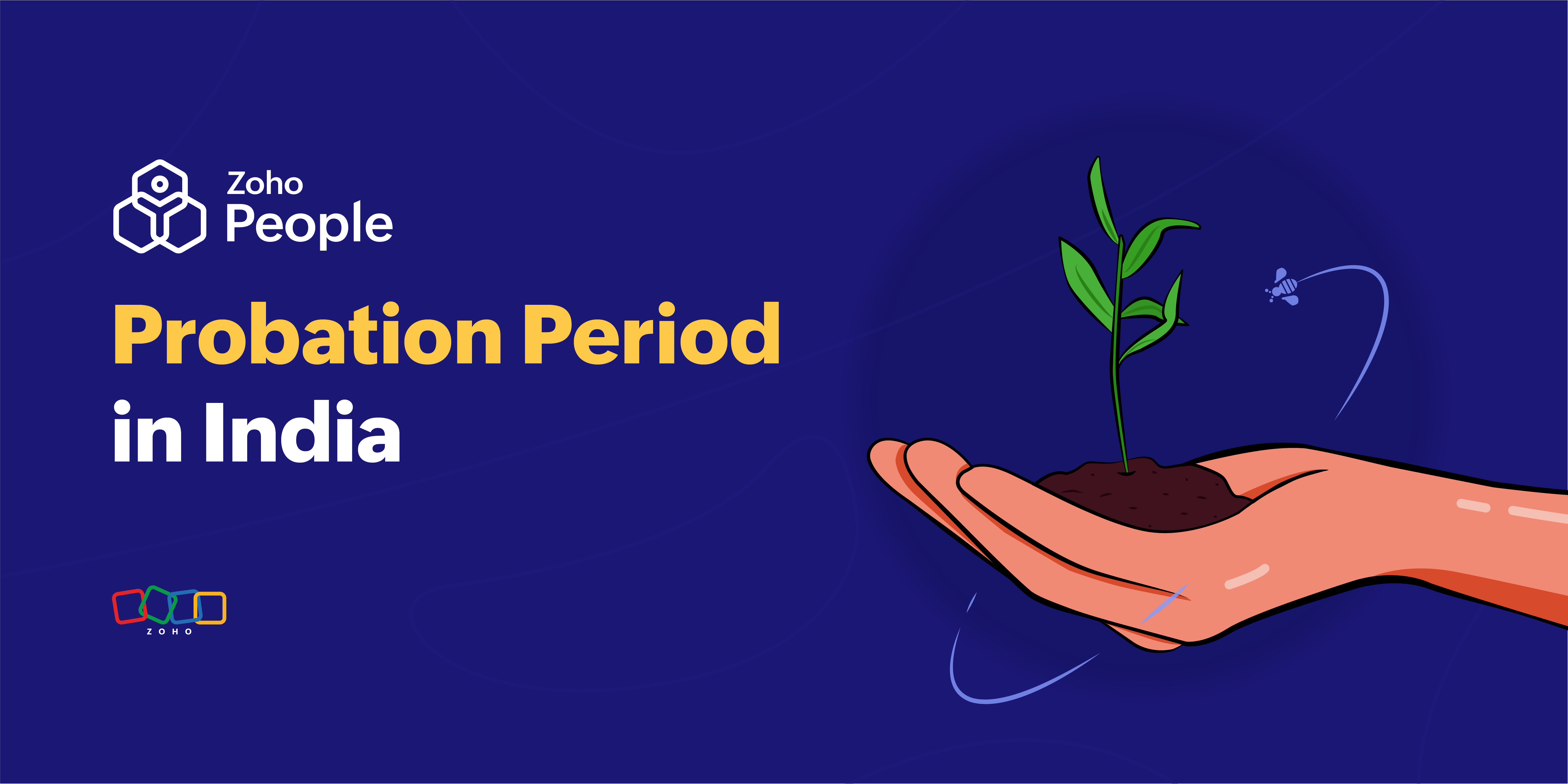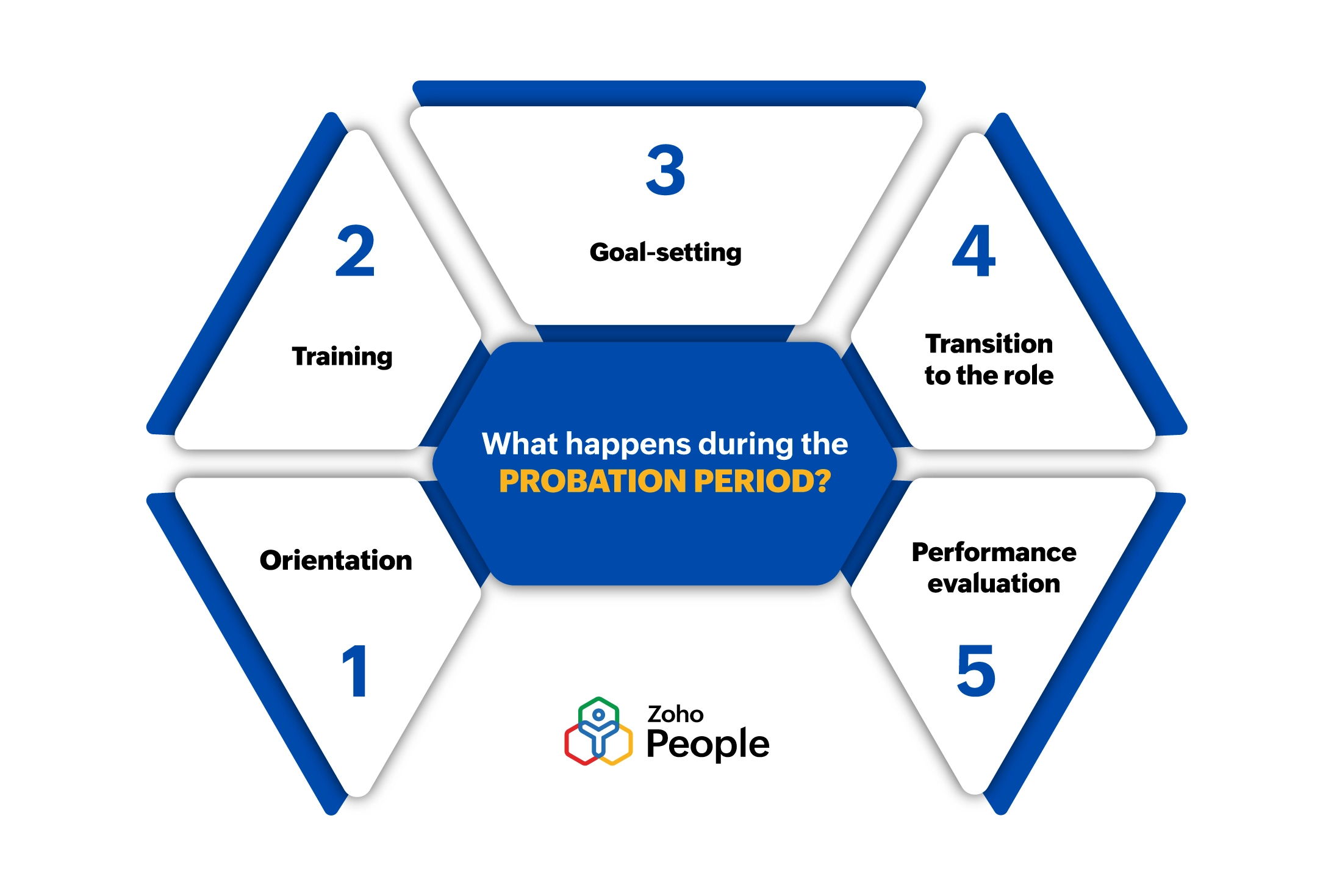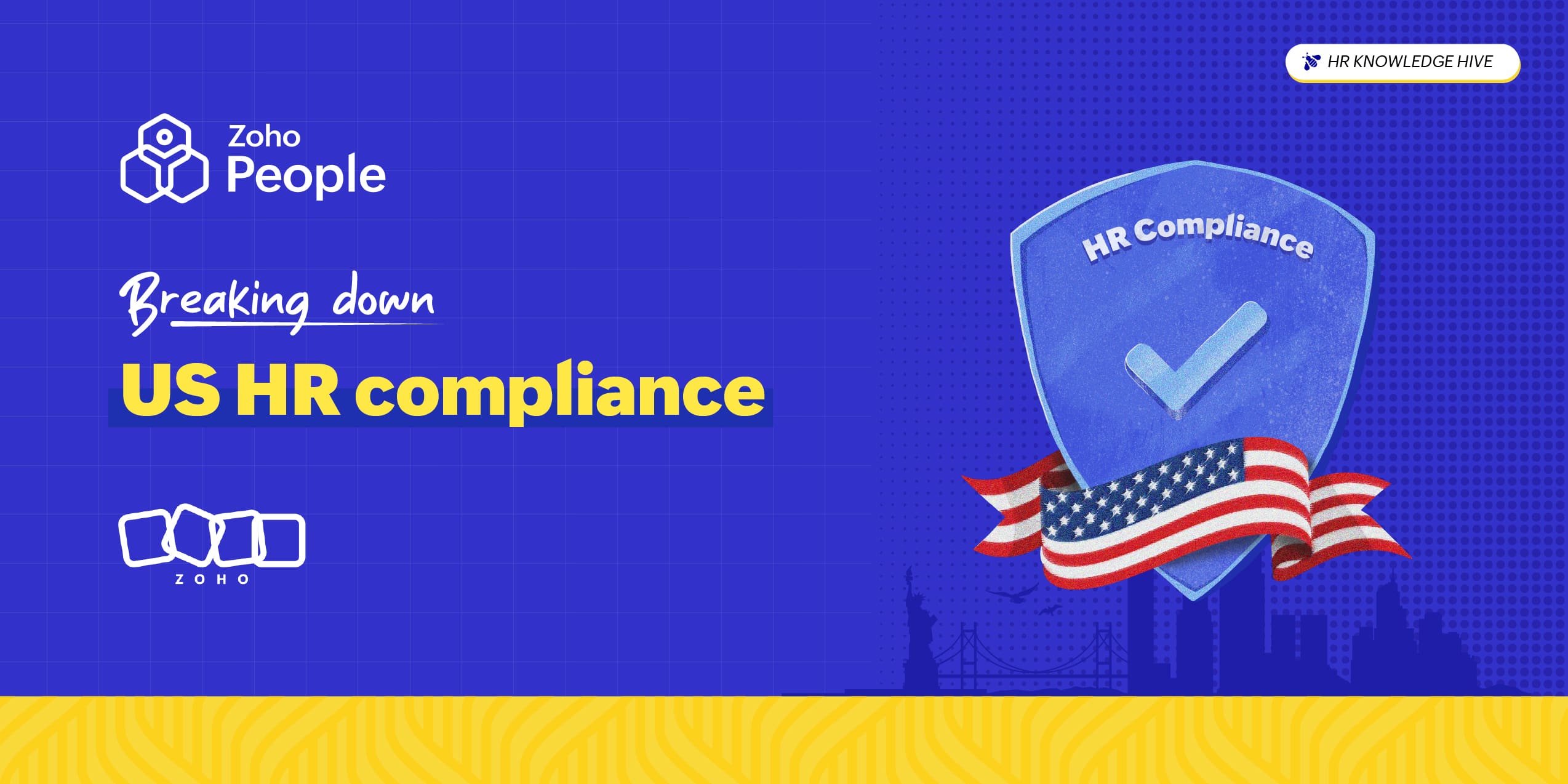- HOME
- HR insights
- Probation period in India: Exploring how it works
Probation period in India: Exploring how it works
- Last Updated : April 4, 2024
- 4.1K Views
- 5 Min Read

Hiring the right employees is key to having a successful business. In the long run, employees who don't align with your workplace's culture and needs can have a severe impact on employee morale, while also damaging the organization's reputation and productivity. That's why it's essential to assess new hires as soon as they join the company. Even after making a bad hiring decision, it's better to spot all the red flags early and let them go instead of keeping them around for a long time. This is where a probation period comes into play. If you're new to the world of HR and wondering what a probation period entails, we're demystifying the basics below.
What is a probation period?
A probation period is initiated at the beginning of a new hire's employment. It's essentially a trial period, during which an organization can closely evaluate the employee to see if their skills, performance, attitude, and values align with the role they've been hired for. New hires are made aware of their roles and responsibilities, trained to excel in their role, and given time to adapt to the company culture. If they fail to keep up with expectations, the organization may decide to let them go or extend their probation period. Usually, organizations brief employees about the terms of the probation period during the start of their employment.
Why is the probation period necessary for your organization?
The probation period helps organizations maintain the quality of their workforce. Here are three reasons why it's necessary for your organization:
Benefits both new hires and employers
Not all hiring decisions may turn out to be positive. Sometimes, resumes are deceiving, or you may have focused more on technical skills than cultural fit during the hiring process. Seeing new hires in your work environment will help you decide better if they are right for your organization. Similarly, employees can assess the company culture and the role to see if they're consistent with what they're looking for in a job. Otherwise, they can also part ways without wasting their or the company's time.
Sets up new hires for success
The probation period is a wonderful time for new hires to explore what their role demands and take up training programs that help them gain the skills required to excel in their role. They can also get a better grasp of the company culture and values. Managers can make use of this time to set clear expectations, objectives, and goals for their new hires and help them fit better into their teams.
Saves time and money for employers
The average cost of a bad hire is 30% of the employee's monthly earnings. Without a probation period, you may be spending time, effort, and money on an employee who can never be productive within your organization. This is where having a probation period truly shines.
What type of organizations follow a probation period?
Almost all organizations, irrespective of their size or the industry they belong to, have a probation period in place to better manage their new hires and set them up for success. However, the duration and terms that apply during the probation period can vary based on the organization's culture, company policies, and in some cases, even the labor laws.
What happens during the probation period?

Here's a step-by-step breakdown of what happens during the probation period:
- Orientation: During this phase, new hires are typically introduced to their organization's culture, norms, policies, code of conduct, and all the details about their job.
- Training: As the name suggests, new hires are provided with the technical and soft skill training programs that are required for them to succeed in their role.
- Goal-setting: During this time, managers typically sit with new hires to set clear expectations and goals for the upcoming performance evaluation period.
- Transition to the role: Once the training is done, new hires are introduced to their day-to-day responsibilities.
- Performance evaluation: Once the mutually agreed-upon timeline is over, managers run performance assessments to see if the new hires are fit for the role. Managers may consider a variety of factors, including role-specific performance, teamwork, willingness to learn and take on new initiatives, attendance, and culture fit, to make the final decision.
What happens after the probation period?
Here are three scenarios that may happen once the probation period of the new hire comes to an end:
Confirmation: When the new hires on probation perform exceptionally well and meet all their goals and expectations, organizations usually make them permanent employees, with or without a salary hike, depending on the organizational policies. They'll get all the benefits that regular employees are entitled to.
Extension of probation: If the new hire fails to meet expectations but employers believe that additional training and time can improve performance, organizations usually extend the probation period instead of letting the employee go. This may happen when employers decide to introduce the new hire to new roles and responsibilities.
Termination: If during the probationary performance review managers and the HR team conclude that the skills, performance, and attitude of the new hire are not consistent with their organizational needs, they may decide to fire the new hire.
Can employees resign during the probation period?
Usually, employees can resign during their probation period. Some organizations have a minimum of one week to a maximum of one month notice period during the probation period, whereas others don't have a notice period at all. It usually depends on the terms outlined by the employer in their appointment letter.
What is the maximum period of probation?
In private organizations, the probation period may last for a maximum of one month, three months, or six months. However, in government organizations, it may sometimes extend up to two years.
Can a company fire its employees during probation?
During the probation period, if the manager and the HR team feel that having the new hire isn't adding any value to the organization, they may decide to let them go early on instead of waiting for the agreed-upon period to come to an end. Most organizations provide a written notice to make new hires aware of their termination.
Wrapping up
Having a probation period for your new hires is an excellent way to help them get started while enabling them to adapt better to their roles and responsibilities. While drafting your appointment letter, be sure to mention all the terms about the probation period offered to new hires, including the time span, chances of extension, what is expected out of new hires during the probation period, and what would happen if they don't meet their expectations properly.
 Tarika
TarikaContent Specialist at Zoho People


